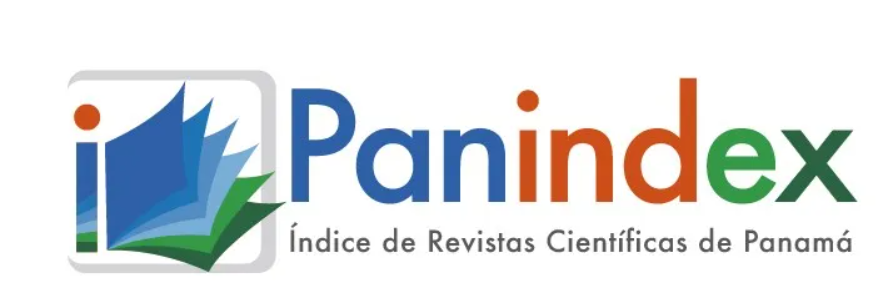The content of the publications and the links suggested in them are the sole responsibility of the authors and not of the METROPOLITAN UNIVERSITY OF EDUCATION, SCIENCE AND TECHNOLOGY (UMECIT) or CATHEDRA magazine. They are protected by international copyright laws just as the UMECIT and CATHEDRA logos, hence their reproduction is totally prohibited
This work is licensed under a Creative Commons Attribution-NonCommercial-NoDerivatives 4.0 International License.
The authors maintain the copyright and transfer the right of the first publication to the journal, with the article registered with Creative Commons Attribution-NonCommercial-NoDerivatives License, which allow others They can download the works published in this magazine and share them with other people, as long as their authorship is recognized, but they cannot be changed in any way nor can they be used commercially.
Authors are recommended to include their work in social networks such as Researchgate and institutional repositories once the article or visible fact has been published on the journal page, without forgetting to include the digital document identifier and the name of the journal.



Abstract
Social commerce is a new model of electronic commerce, which uses social networks to sell products and services directly to consumers. This is something new, and today it is having a great growth, due to the increase in the use of social networks and the impact of the Covid-19 pandemic, which contributed to merchants looking for new sales channels to obtain income. . Users spend more time on social networks such as Instagram, Twitter or Facebook to make various purchases of products or services that the accounts of these networks are publishing. Social networks are offering their resources to entrepreneurs and merchants to sell products or services, with different tools available and access to millions of users from Panama and the world, who are interacting and consuming the content they have every day; giving, an average profit for the exchange of goods and services. In the Republic of Panama, its legislation currently does not contemplate this new business model, which makes its organization, control and development difficult, causing the impediment that there are clear rules that help Panama have a safe and friendly environment for the realization of this new activity. For its regulation, it is necessary to create laws that focus on its development, thus avoiding situations such as tax evasion; as well as the protection of personal data, purchase guarantees, buyer reimbursements, billing, shipments of merchandise, advertising, giveaways and raffles, protection of intellectual property and related rights, among other aspects more than current Panamanian laws do not cover.
Keywords
References
Álvarez, R. (17 de diciembre de 2020). Delitos con el uso de tecnología han incrementado en un 130%. Metro Libre. Recuperado el 3 de febrero de 2021 de https://www.metrolibre. com/nacionales/189326-delitos-con-el-uso-de-tecnolog%C3%ADa-han-incrementado- en-un-130.html
Anteproyecto de Ley N°257 “Que crea la unidad policial especializada en delitos informáticos en la República de Panamá y modifica el Código Penal”, presentado el 26 de enero de 2021. Asamblea Nacional.
Arimetrics, Agencia digital. ¿Qué es Giveaway?. Glosario digital. Recuperado el 23 de marzo de 2021 de https://www.arimetrics.com/glosario-digital/giveaway
Código de Comercio de la República de Panamá. Recuperado el 15 de octubre de 2021
de https://vlex.com.pa/vid/codigo-comercio-58511493
Decreto Ley Nº2 de 10 de febrero de 1998, Gaceta Oficial N° 23484. Por medio del cual se reestructura la Junta de Control de Juegos, se le asignan funciones y se dictan otras disposiciones.
Facebook, Inc. (2021). Condiciones de uso. Instagram. Recuperado el 2 de junio del 2021 de https://help.instagram.com/581066165581870
Facebook, Inc. (2021). Normas comunitarias. Instagram. Recuperado el 2 de junio del 2021 del sitio web: help.instagram.com/477434105621119/?helpref=uf_share
Hernández, K. (29 de junio de 2020). Las redes sociales, un salvavidas comercial de las pymes y los emprendedores. Martes Financiero, la revista financiera de Panamá. Recuperado el 2 de abril de 2021 de https://www.martesfinanciero.com/relieve/las-redes- sociales-el-salvavidas-de-las-pymes-y-los-emprendedores/
Ley 1480 de 2011. Diario Oficial No. 48.220 de 12 de octubre de 2011. Por medio de la cual se expide el Estatuto del Consumidor y se dictan otras disposiciones. El Congreso de Colombia.
Ley 51 De 22 de julio de 2008, Gaceta Oficial N° 26090. Que define y regula los documentos electrónicos y las firmas electrónicas y la prestación de servicios de almacenamiento tecnológico de documentos y de certificación de firmas electrónicas y adopta otras disposiciones para el desarrollo del comercio electrónico. Modificada por la Ley 82 de 9 de noviembre de 2012, Gaceta Oficial N° 27160. República de Panamá.
Ley 81 de 26 de marzo de 2019, “Sobre Protección De Datos Personales”, Gaceta Oficial N° 28743-A. República de Panamá.
Martínez, C. (2021). Expertos: redes sociales, un servicio privado, no público. El Universal. Fecha de publicación 3 de febrero de 2021.
Ministerio de Tecnologías de la Información y las Comunicaciones. (2021). Sociedad de la Información. Gobierno de Colombia. Recuperado el 2 de marzo de 2021 de https:// mintic.gov.co/portal/inicio/Glosario/S/5305:Sociedad-de-la-Informacion
Real Decreto Legislativo 1/2007. Ley General para la Defensa de los Consumidores y Usuarios y otras leyes complementarias. Reino de España.
Redacción. (3 de octubre de 2019). En Panamá no existe regulación en las ventas por Instagram. Metro Libre, la verdad de la noticia. Recuperado el 2 de febrero de 2021 de https://www.metrolibre.com/cultura/149610-en-panam%C3%A1-no-existe- regulaci%C3%B3n-en-las-ventas-por-instagram.html
Downloads
Publication Facts
Reviewer profiles N/A
Author statements
- Academic society
- Universidad Metropolitana de Educación, Ciencia y Tecnología
- Publisher
- Universidad Metropolitana de Educación, Ciencia y Tecnología




















